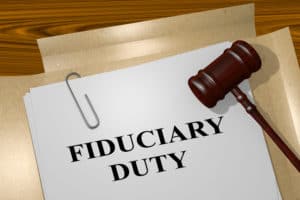
QROPS trustees
Most QROPS are trusts, run by people who should have a responsibility to the pension holders. These people are called trustees, but what are the QROPS trustee duties? What should trustees be doing for the pension holder?
Many thousands of UK pension holders have moved to QROPS, with varying degrees of satisfaction. Many QROPS investors that contact us for our Forensics Service have questioned the role of the QROPS trustees, as the new owners of their transferred UK pensions.
QROPS Trustees- what is a trust?
A trust is an agreement in which one person (the “settlor”) agrees to transfer property to another (the “trustee”) who manages that property for the benefit of someone else (the “beneficiary”). The settlor must legally transfer ownership of the assets to the trustee of the trust.
What are QROPS Trustee duties?
Fiduciary responsibility is paramount. QROPS trustees have a “fiduciary” role with respect to the beneficiaries of the trust, both the current beneficiaries and any “remaindermen” named to receive trust assets upon the death of those entitled to income or principal now.
What if something goes wrong?
In British law, a trustee is personally liable for a breach of his or her fiduciary duties. The trustee’s fiduciary duties include a duty of loyalty, a duty of prudence and other subsidiary duties. How enforceable is this outside of the UK? Due diligence on the adviser and the trustee in the first place should hopefully avoid such a scenario.
Invariably, the reason people contact us for a Forensics Review is due to concerns about poor investment performance, large losses and excessive charges. Often this is accompanied by concerns that the original adviser did not actually have the requisite licences to provide any investment advice- often opting to sell inflexible and expensive insurance wrapper to generate hidden commissions.
QROPS Trustee Duties – Investments
The QROPS trustees are required to take reasonable care in making investments: They are the owners of the funds and they consider the needs of the beneficiary, the suitability of the investments, ensure proper diversification and ensure the advice given to the beneficiaries is robust, regulated and insured.
Anything less is a failure in their duties.
QROPS Trustee Duties – Taking personal responsibility
QROPS trustees are protected by statutory exoneration while they perform their tasks. However, what happens if they do not put the clients’ best interests first. What happens if a QROPS trustee has been taking investment instructions from an unregulated (or life insurance based) adviser? This will become even more of an issue post 3rd January 2018?
If a QROPS trustee duties have allowed them to accept advice from an unregulated adviser, then it is only fair to seek answers as to why actions recommended were accepted by the trustees. It is possible that statutory exoneration will not apply, which means the trustee becomes personally liable for any breach of trust and that can include investments in some scenarios (e.g. unsuitable or high risk investments, or investments that were deemed suitable only for professional investors).
QROPS Trustees and Subject Access Requests
If you wish to put in a Subject Access Request under the EU Data Protection Directive 95/46/EC then you can do so and request access to your personal data and a description or copy of a relevant transactions or letters / emails concerning you. Each EU state has its own Subject Access Request process and each trustee or investment body will normally be signed up to the Data Protection law. From July 2018 there are new, far more severe, rules that apply.
The views expressed in this article are not to be construed as personal advice. You should contact a qualified and ideally regulated adviser in order to obtain up to date personal advice with regard to your own personal circumstances. If you do not then you are acting under your own authority and deemed “execution only”. The author does not except any liability for people acting without personalised advice, who base a decision on views expressed in this generic article. Where this article is dated then it is based on legislation as of the date. Legislation changes but articles are rarely updated, although sometimes a new article is written; so, please check for later articles or changes in legislation on official government websites, as this article should not be relied on in isolation.
This article was published on 3rd November 2017
Related Stories:
- Best QROPS Providers
- QROPS A Simple Matter of Trust
- QROPS and SIPPs- A Matter of Trust
- Gibraltar QROPS- New investment rules
- QROPS in France
Share this story






